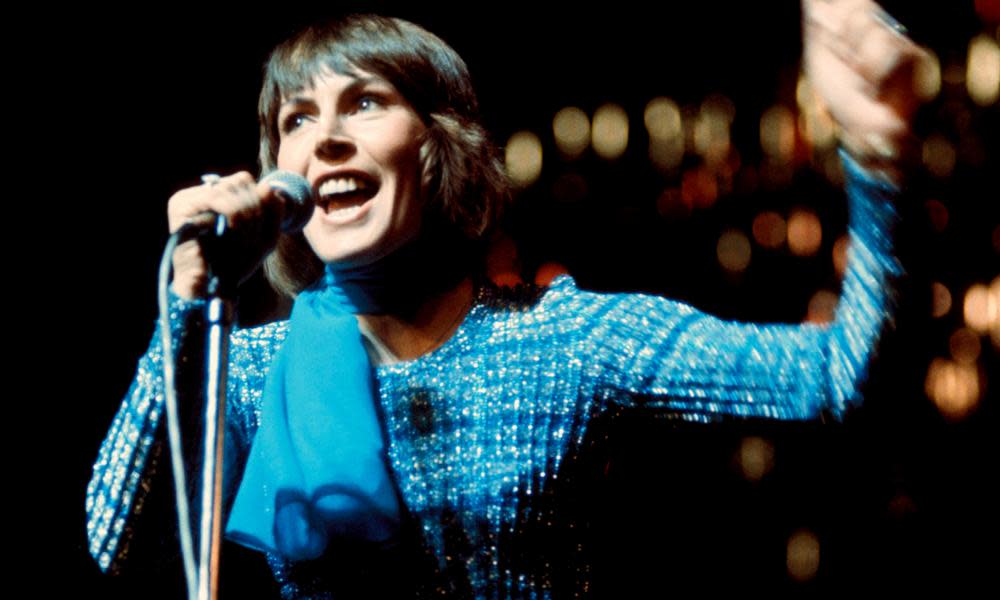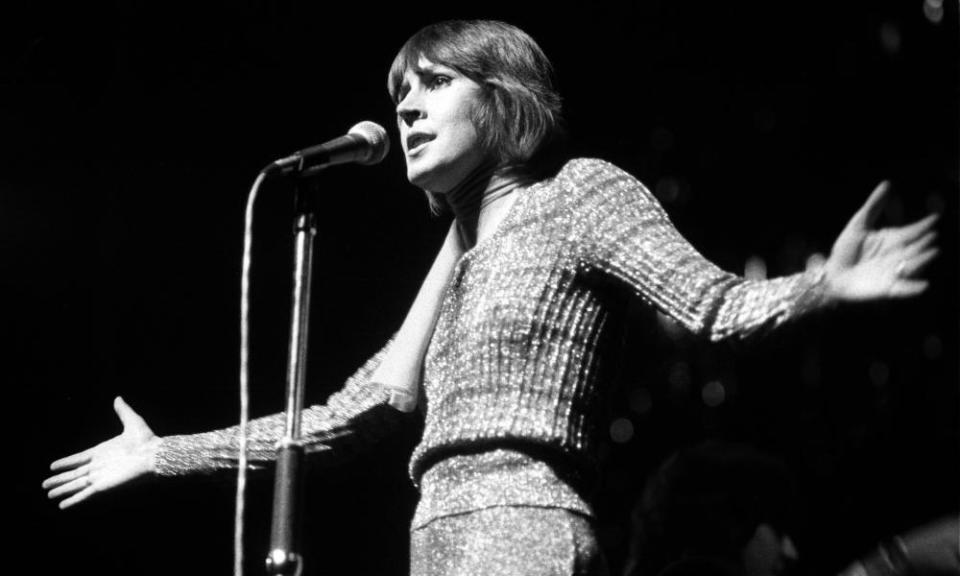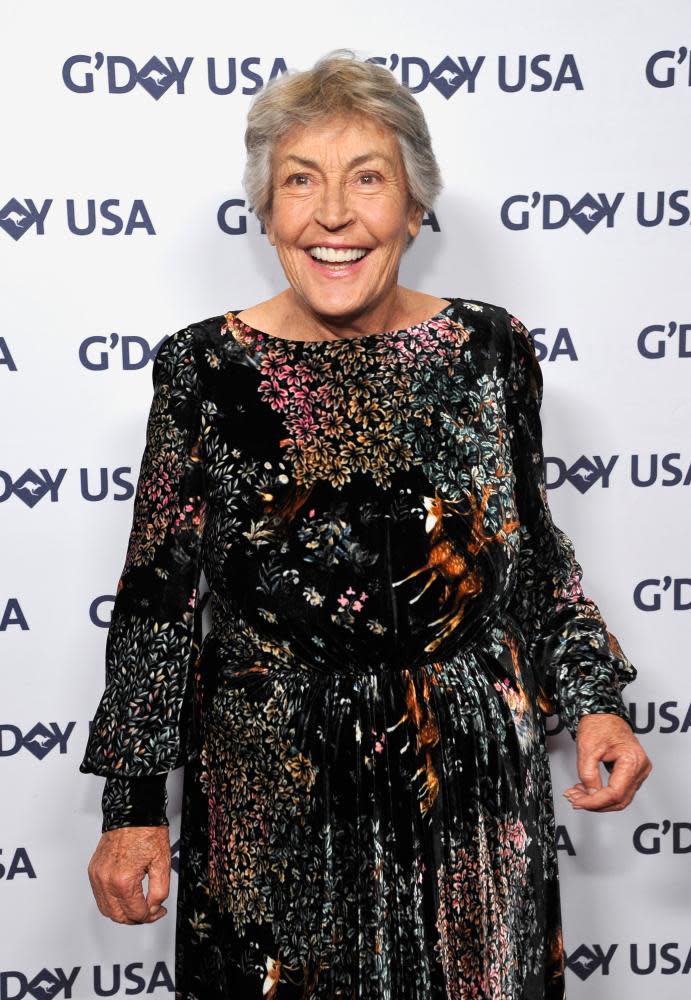Helen Reddy obituary

Every social movement has its definitive song, and feminism got its anthem in 1972, when the Australian singer Helen Reddy released the single I Am Woman. In three elegant minutes, it hewed a portal through which schoolgirls and their mothers saw an empowered future. Reaching No 1 in the US and selling 1m copies there, it also established Reddy, who has died aged 78, as one of the top-selling female vocalists of the decade.
In her pomp during the early 1970s no woman sold more records or scored more No 1 singles in a row (five) on the Billboard Adult Contemporary chart; nor did any other female vocalist excite quite such opposing views among the public. Hipsters were repelled by her silky vocal style and smooth arrangements, with Alice Cooper dubbing her “the queen of housewife rock”; conservatives, on the other hand, were unsettled by I Am Woman’s call to arms.
Accepting the 1973 Grammy award in the best female pop vocal category, Reddy rubbed salt into the wound by saying: “I would like to thank God, because she makes everything possible.” For her part, Reddy concurred with Cooper: “[Queen of housewife rock] means I’ve reached a lot of people in a simplistic manner who would never go to a lecture or read an article on women’s lib.”

She had not expected the song to become a hit, let alone a cultural touchstone. She wrote the lyrics (the music was composed by an Australian guitarist friend, Ray Burton) on impulse, having lain in bed one night and taken stock of the grinding struggle to break through in the music business.
As a jobbing singer in Australia and then Los Angeles, she had been belittled and harassed by male executives and performers, and consequently became part of a Hollywood women’s discussion group. What emerged the day she wrote I Am Woman was effortlessly, unequivocally anthemic: “I am woman, hear me roar, in numbers too big to ignore … I am strong, I am invincible, I am woman.”
It caught the mood of what was then called the women’s liberation movement just as it was becoming an unstoppable wave; nearly 50 years later, the phrase “hear me roar” is part of the lexicon.

Yet Reddy did not fancy its chances in the chart. And, initially, events bore her out. The tune was tucked away on her 1971 debut album, I Don’t Know How to Love Him, which had been hastily recorded after the title track, written by Andrew Lloyd Webber and Tim Rice for the musical Jesus Christ Superstar the previous year, became a medium-sized hit.
For commercial purposes I Am Woman, the fourth song on side one, was just another album track. Though Reddy opened her live shows with it, she maintained that it was “clearly not hit single material”, and if it had not fortuitously been used in the soundtrack of a 1972 Jacqueline Bisset comedy, Stand Up and Be Counted, Reddy would have been proved right.
The exposure in the film persuaded her label to put it out as a single, and her then husband and manager, Jeff Wald, arranged performing slots on nearly 20 American TV programmes. After six months’ slow progress up the chart, I Am Woman finally reached No 1. In Australia, it was No 2; the UK, however, took no notice until the 1974 single Angie Baby became her sole British hit.
For the purveyor of a highly influential song, Reddy herself presented the mildest of figures. Restraint in both performance and appearance was her trademark. In an era when pop-star fashion ran to road-worn denim or glam-rock frippery, Reddy took the middle path: stylish but toned down.
Her vocal inflections would have done her proud on the lounge jazz circuit; in the pop world, she was almost too refined. In retrospect, her catalogue’s big numbers – Angie Baby, Delta Dawn, Leave Me Alone (Ruby Red Dress), Ain’t No Way to Treat a Lady – seem much better than the era that spawned them.
Born in Melbourne, Helen was the only child of Stella Lamond and Max Reddy. They were actors and Helen followed them into show business at the age of four. It was their idea rather than hers, but she gamely sang and danced until, aged 17, she rebelled. At 20 she married Kenneth Weate, a musician. During their brief time together, they had a daughter, Traci.
Reddy won a radio talent contest in 1966 and went to New York to claim her prize, an audition for Mercury Records. That was unsuccessful and she took singing jobs in clubs and casinos. During her early months in New York she met Wald, a William Morris talent agent, and married him three days later. Their son, Jordan, was born in 1972.
A short, unsuccessful deal with Fontana Records was followed by a move to LA, where Reddy secured a more fruitful contract with Capitol Records. She had 13 Top 40 singles, but her star gradually declined. After 1977 she had no significant hits although she did appear on Voices That Care, a 1991 charity single. In the meantime, a new career in musical theatre had opened up in the late 80s, including playing Mrs Johnstone in Blood Brothers (1995) and the title role of Shirley Valentine (1995-97); she retired in 2002.
There was a brief, happy return to performing in 2012, and in 2017 she sang I Am Woman to 750,000 people on the Women’s March on Washington. Diagnosed with dementia in 2015, she moved into the Motion Picture retirement home in Los Angeles.
Reddy and Wald divorced in 1983. Later that year she married Milton Ruth, a drummer in her band. They divorced in 1995. Her children survive her.
• Helen Maxine Reddy, singer, born 25 October 1941; died 29 September 2020

 Yahoo News
Yahoo News 
